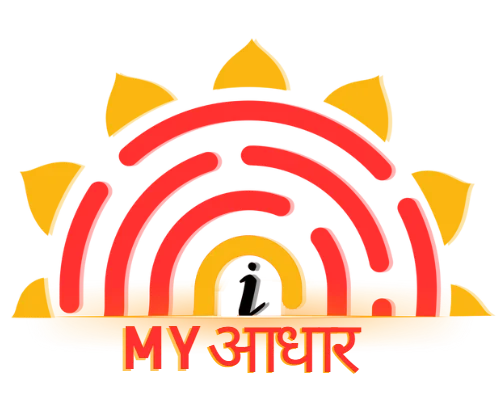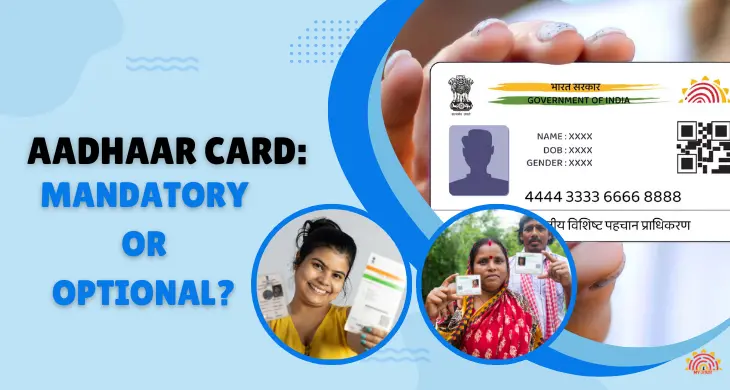The Aadhaar card, administered by the Unique Identification Authority of India (UIDAI), has emerged as a pivotal identity document in India. Its integration with numerous services prompts the query: Is possessing an Aadhaar card obligatory? This piece aims to untangle the nuances of Aadhaar’s mandate, its significance in diverse government initiatives, and dispel any misunderstandings regarding its compulsion. Explore the article for a comprehensive understanding of Aadhaar’s role in India’s identity landscape.
Understanding the Significance of Aadhaar:
The Aadhaar card is a distinctive identification number issued to Indian citizens, serving as a comprehensive proof of both identity and residence. It encompasses a wealth of biometric and demographic data, rendering it a robust and dependable tool for authentication purposes. This multifaceted document plays a crucial role in various facets of civic life, facilitating streamlined access to an array of government services and benefits. With its secure and technologically advanced features, the Aadhaar card has surfaced as a foundation of identity verification, bearing the nation’s executive processes and enhancing overall security measures. Its wide perpetration has not only revolutionized the way individuals authenticate their identities but has also paved the way for multitudinous enterprise aimed at inclusive growth and development across the country.
Debunking the Myth: Is It Mandatory?
It’s important to debunk the misconception that having an Aadhaar card is a legal need. The highest judicial authority in India, the Supreme Court, has unequivocally stated that Aadhaar can not be assessed as an obligatory prerequisite for entering vital services or entitlements. This landmark decision underscores the voluntary nature of Aadhaar enrollment. While it offers a host of advantages and simplifies various administrative processes, citizens are not obligated by law to obtain an Aadhaar card. This distinction ensures that individuals have the autonomy to choose whether or not to avail themselves of this unique identification tool. The Supreme Court’s ruling provides a safeguard against any potential coercion or undue pressure on citizens to enroll for Aadhaar. It upholds the fundamental principle of personal choice and reinforces the notion that possessing an Aadhaar card is a matter of discretion, not compulsion.
Where Aadhaar is Required and Where It’s Not:
Although possessing an Aadhaar card is not obligatory, it is intricately connected to numerous critical services and governmental initiatives. This linkage extends to essential areas such as availing government subsidies, participating in welfare programs, and filing income tax returns. Recognizing the specific contexts where Aadhaar is applicable empowers individuals to make informed decisions about its utilization. By understanding the scenarios and services where Aadhaar may be advantageous, citizens can effectively navigate its role in their interactions with various institutions. This nuanced comprehension ensures that individuals can capitalize on the benefits that Aadhaar integration offers, without feeling compelled to obtain it solely due to perceived mandatory requirements. In essence, being cognizant of when and where Aadhaar is relevant allows individuals to wield it as a valuable tool, aligning its usage with their specific needs and preferences.
Aadhaar in the Digital Era:
In the digital era, Aadhaar has emerged as a cornerstone of identity authentication in India. It represents a paradigm shift in how individuals prove their identity and avail services. With its biometric and demographic data, Aadhaar provides a secure and efficient means of verification, reducing the reliance on traditional paper-based documents. Its integration with various government services, financial institutions, and welfare schemes has streamlined processes and curbed fraudulent activities. However, concerns about privacy and data security have also been raised, leading to legal debates and regulations surrounding its usage. As technology advances, Aadhaar continues to evolve, exemplifying the dynamic interplay between identity verification, technology, and governance in the digital landscape. It stands as a testament to India’s commitment to harnessing technology for inclusive growth and citizen empowerment.
Aadhaar Controversy:
The Aadhaar controversy revolves around the enterprises and debates circling the Unique Identification Authority of India’s( UIDAI) Aadhaar program. While Aadhaar has been hailed for its implicit to streamline services and reduce fraud, it has also faced review and legal challenges. One major point of contention has been the right to privacy, with critics arguing that Aadhaar Is extensive data collection poses a trouble to individual privacy rights. There have been cases of data breaches and unauthorized sharing of Aadhaar information, further fueling these enterprises. Legal battles have ensued, with the Supreme Court of India making several key rulings on Aadhaar’s usage. These rulings have helped delineate the scope and limitations of Aadhaar’s mandate, addressing issues of consent and mandatory linkage to various services. The controversy highlights the complex intersection of technology, governance, and individual rights in the digital age.
Supreme Court Verdicts
The Supreme Court has been instrumental in defining the legal framework and applicability of Aadhaar. Through pivotal judgments, the Court has established clear parameters regarding situations in which Aadhaar can be required and those in which it cannot. These landmark rulings have provided crucial guidance on the extent to which Aadhaar can be mandated, ensuring that its usage is within well-defined boundaries. This legal charge has been vital in protecting individual rights and privacy, while also admitting the benefits of Aadhaar in specific surrounds. As a result, the Court’s interventions have played a pivotal part in shaping the landscape of Aadhaar commission, balancing the need for identity verification with the protection of citizens’ fundamental rights.
Frequently Asked Questions:
Ques: Is it necessary to have an Aadhaar card?
Ans: No, it isn’t necessary by law to own an Aadhaar card.
Ques: What services or benefits require Aadhaar authentication?
Ans: Aadhaar authentication is required for services similar to government subsidies, welfare schemes, income duty forms, and some banking deals.
Ques: Can I choose out of Aadhaar if I already have one?
Ans: While it’s possible to deactivate or not use your Aadhaar for certain services, formerly enrolled, the UIDAI retains the data. Complete choice- out isn’t given for.
Ques: How do I link my Aadhaar to colorful services?
Ans: Aadhaar can be linked to colorful services through the separate service providers’ sanctioned channels or websites.
Ques: What should I do if I do not want to use Aadhaar?
Ans: You can avoid linking it to services where it isn’t mandatory, If you choose not to use Aadhaar. Still, some government schemes and services may bear Aadhaar authentication as per their programs.
Conclusion:
In summary, it’s important to recognize that having an Aadhaar card isn’t a legal necessity. The Supreme Court’s rulings have clarified that Aadhaar can not be executed for essential services or benefits. While Aadhaar is linked to multiple services, individuals have the will to choose whether or not to use it. This understanding empowers people to navigate Aadhaar’s operation according to their preferences and conditions, ensuring they’ve control over their particular information and its operation in their day-to-day lives.

